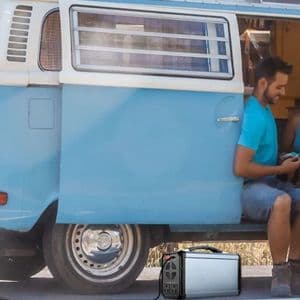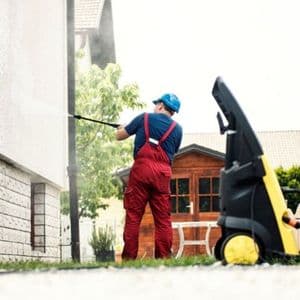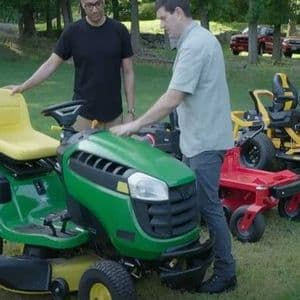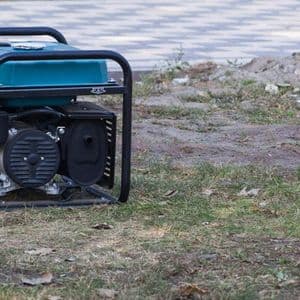Discovering the Top Electric Snow Blowers
Selecting the ideal snow blower is a personal journey, heavily influenced by individual needs and living conditions. To assist you in this decision, we meticulously researched a diverse range of options, accommodating various budgets and driveways of all sizes. Recognizing that snow removal demands in snowy Midwest regions differ significantly from those in milder climates, we've categorized our picks based on their standout features, simplifying your search.
Our evaluation process involved a comprehensive review of highly-regarded brands available at leading retailers such as Ace Hardware, Walmart, Amazon, and Lowe's.
Beyond performance, we assessed ease of assembly and overall durability to ensure a well-rounded evaluation.
Choosing the Right Electric Snow Blower
How to Choose the Right Model:
- Consider the size of your driveway, typical snowfall levels, and your budget.
- For small driveways and light snow, a lightweight cordless model may suffice.
- For larger driveways or heavier snow, a corded model with higher power may be better.
Key Factors to Compare:
- Power: Measured in amps, indicating the snow blower's capability.
- Clearing Width and Depth: Determines how much snow the blower can remove at once.
- Weight and Maneuverability: Impacts ease of movement and handling.
- Battery Life (Cordless Models): Indicates runtime on a single charge.
- Features: Look for self-propulsion, headlights, and adjustable chute directions.
Types of Electric Snow Blowers
- Corded Electric Snow Blowers: Powered by a standard electrical outlet.
- Cordless Electric Snow Blowers: Operate using rechargeable batteries.
Advantages of Electric Snow Blowers
- Environmentally Friendly: No gasoline emissions.
- Quiet Operation: Less noisy than gas-powered models.
- Easy to Start: No need for pull cords or engine priming.
- Affordable: Generally more budget-friendly than gas-powered options.
For more benefits, visit Energy.gov.
Disadvantages of Electric Snow Blowers
- Limited Power: May struggle with heavy, wet snow or large areas.
- Cord Restrictions: Corded models have limited reach.
- Battery Limitations: Cordless models may have shorter run times and require charging.
Using and Maintaining Your Electric Snow Blower
Proper Usage Tips:
- Follow the manufacturer’s instructions.
- Remove debris from the area before starting.
- Gradually increase speed while operating.
- Avoid overloading the machine.
- Prevent running over cords or cables.
For usage tips, see Briggs & Stratton’s Snow Blower Guide.
Maintenance Tips:
- Clean the snow blower after every use.
- Inspect the auger and impeller for damage.
- Charge the battery regularly (for cordless models).
- Store the snow blower in a dry, secure place.
Find a comprehensive maintenance checklist at Toro’s Official Site.
FAQs for Electric Snow Blowers
1. What is the difference between a single-stage and a two-stage electric snow blower?
- Single-stage snow blowers use an auger to gather and discharge snow in one motion, making them ideal for light snow and small areas.
- Two-stage snow blowers add an impeller to throw snow farther and are better suited for heavy, wet snow and larger driveways.
2. How much snow can an electric snow blower handle?
Electric snow blowers typically handle light to moderate snowfall, up to about 12 inches deep. For heavier or wetter snow, a high-powered model or a gas-powered blower may be more effective.
3. Are electric snow blowers easy to maintain?
Yes, electric snow blowers are low maintenance compared to gas-powered models. They don’t require oil changes, fuel, or engine tune-ups—just regular cleaning, occasional inspections, and battery care for cordless models.
4. How long does the battery last on a cordless electric snow blower?
Battery life varies by model and conditions but typically ranges from 20 to 60 minutes per charge. Some models offer interchangeable batteries for extended use.
5. Can I use an electric snow blower on gravel driveways?
Single-stage electric snow blowers are not recommended for gravel driveways as the auger comes into contact with the ground. However, some two-stage models are designed for gravel surfaces.
6. Do I need an extension cord for corded electric snow blowers?
Yes, corded models require a heavy-duty outdoor-rated extension cord compatible with the machine's amperage. Always check the manufacturer’s guidelines for cord specifications.
7. Are electric snow blowers suitable for icy conditions?
Electric snow blowers can handle light ice mixed with snow but may struggle with thick or compacted ice. For icy conditions, consider using a snow blower with higher power or pre-treat the surface with de-icer.
8. How do I store an electric snow blower when it’s not in use?
Store your snow blower in a dry, secure location. For cordless models, remove and store the battery separately to protect it from extreme temperatures.
9. Are electric snow blowers environmentally friendly?
Yes, they produce no direct emissions, making them an eco-friendly alternative to gas-powered models.
10. How much does an electric snow blower cost?
Prices for electric snow blowers range from $150 to $800, depending on features, power, and type (corded vs. cordless).




























